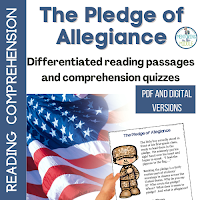Don't you just love it when your students take an idea and poke at it until they start to understand the concept better? Sometimes it slows your lessons down, but it can also generate the richest discussions that help complex ideas make more sense.
This happened at school a few years ago around the concept of democracy. We'd been reading and discussing some rather dense material about the roots of democracy and the kids had struggled to understand where ancient philosophers like Socrates, Plato, Aristotle, and Cicero stood on this issue. Some of it was just remembering who said what and which person was taught by whom. Hard stuff for sixth graders!
The next day, we started a conversation about whether students should have a say in what happens at school. Most thought they should. A student said, "School is our 'world.' We spend 12 or 13 years here and we should have a say in how things are run." Most agreed.Others recognized that students don't always make the best decisions and that they sometimes don't think about consequences. Two hours of recess might not benefit them all (although some days, I think it might!) We talked about how the ancient philosophers had had similar misgivings about people, and how those worries shaped their beliefs about democracy, which, hundreds of years later, impacted the U.S. Constitution's writers.
At the end of the following day, four boys came up to me and announced, "We've formed our own country!" They explained that they had elected a president, a judge, one senator, and one representative. The balance of power was taken care of! Judicial, Executive, and Legislative branches were represented. And, my favorite, because 6th graders can be so optimistic. Weekly elections would give everyone a turn in office.
I was smiling at their enthusiasm, but marveling that they'd gotten this idea of "government by the people," picking away at the concept until it made sense to their 11- and 12-year-old minds. That's the best part of watching kids "get it"!
At the end of the following day, four boys came up to me and announced, "We've formed our own country!" They explained that they had elected a president, a judge, one senator, and one representative. The balance of power was taken care of! Judicial, Executive, and Legislative branches were represented. And, my favorite, because 6th graders can be so optimistic. Weekly elections would give everyone a turn in office.
I was smiling at their enthusiasm, but marveling that they'd gotten this idea of "government by the people," picking away at the concept until it made sense to their 11- and 12-year-old minds. That's the best part of watching kids "get it"!
- Take a closer look to help your students understand what they're saying when they recite the Pledge of Allegiance.



No comments
Post a Comment